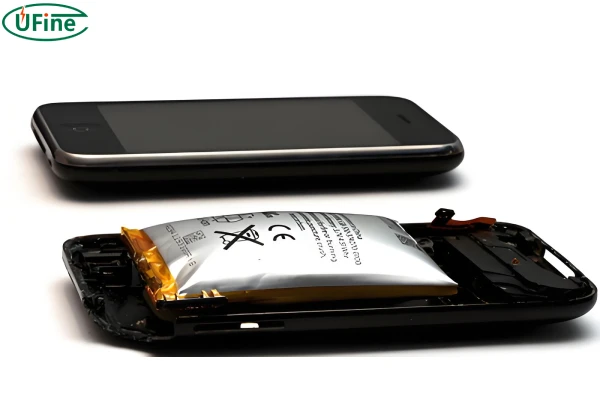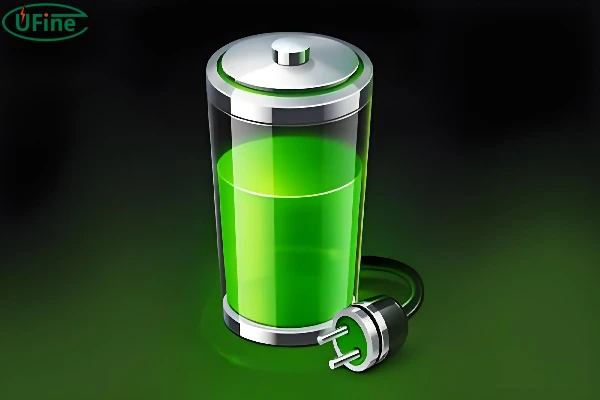Lithium batteries have revolutionized our world, powering everything from smartphones to electric cars. However, with the rise in their usage, safety concerns have also emerged. You’ve likely heard stories of batteries exploding or catching fire. This article aims to demystify these concerns by exploring the types of lithium batteries, their safety, and how to use them securely.
Part 1. What types of lithium batteries are there?
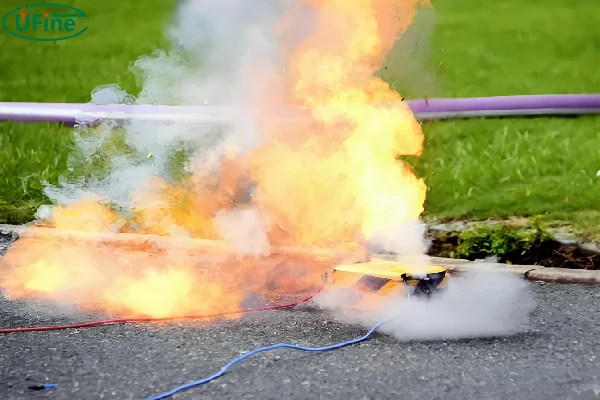
Lithium batteries come in various types, each with unique characteristics and applications. Understanding these differences can help you choose the safest and most suitable option.
1. Lithium-ion (Li-ion) Batteries
- Common Uses: Li-ion batteries are ubiquitous in consumer electronics such as smartphones, laptops, and cameras.
- Features: They boast a high energy density, meaning they can store a lot of energy relative to their size and weight. This makes them ideal for portable devices.
- Safety Concerns: While efficient, Li-ion batteries can overheat and catch fire if damaged or improperly handled. They are sensitive to high temperatures and have a risk of thermal runaway, a chain reaction that can cause the battery to ignite.
2. Lithium Polymer (LiPo) Batteries
- Common Uses: LiPo batteries are popular in applications requiring flexible shapes and sizes, such as drones, RC cars, and some slim-profile smartphones.
- Features: These batteries can be made in various shapes and are generally lighter than their Li-ion counterparts.
- Safety Concerns: Similar to Li-ion, LiPo batteries can also pose safety risks if punctured or overcharged. Their flexible nature can sometimes make them more susceptible to physical damage.
3. Lithium Iron Phosphate (LFP) Batteries
- Common Uses: LFP batteries are increasingly used in electric vehicles, solar energy storage systems, and power tools due to their stability and long lifespan.
- Features: They offer a slightly lower energy density compared to Li-ion batteries but are much safer and more stable.
- Safety Concerns: LFP batteries are considered one of the safest lithium battery types. They have a lower risk of thermal runaway and are more resistant to high temperatures.
Part 2. Are lithium batteries really unsafe?
According to a survey, The proliferation of lithium-ion batteries and the products that run on them has resulted in an exponential increase in incidents resulting in injuries and fatalities.
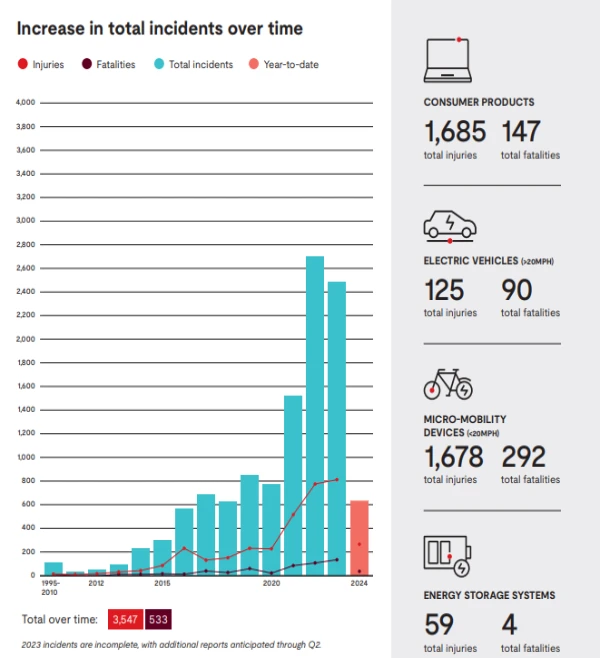
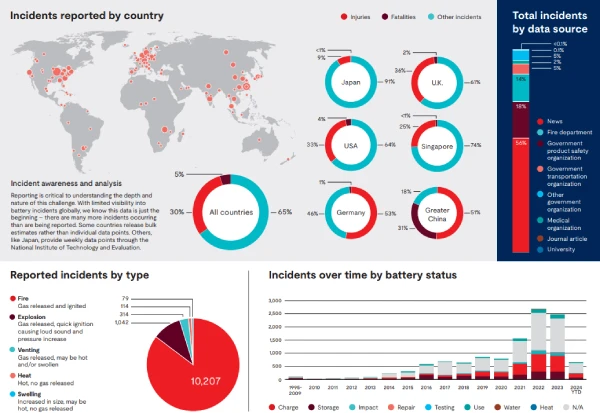
While this number might seem alarming, it’s relatively low considering the billions of lithium batteries in use worldwide.
The safety of lithium batteries often comes into question, especially with media reports of battery explosions. However, it’s important to put these incidents into perspective. The vast majority of lithium batteries operate safely without any issues. Incidents are rare and often the result of specific conditions or misuse.
Why Do Incidents Occur?
- Physical Damage: Dropping or puncturing a battery can cause internal short circuits, leading to overheating.
- Overcharging: Charging a battery beyond its capacity can generate excessive heat, potentially igniting it.
- Manufacturing Defects: Occasionally, batteries may have defects from the manufacturing process that can cause failures even with normal use.
Part 3. Should we continue to use lithium batteries?
Despite these risks, lithium batteries remain essential in our modern world.
Here’s why we should continue using them:
1. Efficiency
- High Energy Density: Lithium batteries can store a significant amount of energy in a compact size, making them perfect for portable devices.
- Lightweight: Compared to other battery types, lithium batteries are lighter, which is crucial for applications like smartphones and electric vehicles.
2. Environmental Impact
- Rechargeable: Lithium batteries can be recharged many times, reducing the need for disposable batteries and thus lowering environmental waste.
- Recycling Programs: Many lithium batteries can be recycled, further mitigating their environmental impact.
3. Cost-Effectiveness
Long Lifespan: While they may be more expensive upfront, lithium batteries often last longer than other types, offering cost savings over time.
Part 4. What affects the safety of lithium batteries?
Several factors can influence the safety of lithium batteries. Understanding these can help you use them more safely.
1. Quality of Manufacturing
- Strict Standards: High-quality lithium batteries are manufactured under stringent safety standards. Choosing reputable brands can reduce the risk of defects.
- Defective Units: Low-quality manufacturing can lead to defects, increasing the risk of failures.
2. Battery Management Systems (BMS)
- Monitoring: A BMS helps monitor and manage the battery’s performance, ensuring it operates within safe parameters.
- Prevention: It prevents overcharging, over-discharging, and overheating, which are common causes of battery failures.
- Balance: A BMS also helps balance the charge among the cells in a battery pack, ensuring uniform performance and extending the battery’s lifespan.
3. Usage and Handling
- Proper Use: Following the manufacturer’s guidelines for charging and discharging is crucial. Using the correct charger and avoiding overcharging can prevent overheating.
- Physical Protection: Avoiding physical damage to the battery is essential. Dropping, puncturing, or exposing the battery to extreme temperatures can lead to failures.
- Storage: Storing batteries in a cool, dry place away from direct sunlight and heat sources can help maintain their safety and longevity.
Part 5. Which lithium battery is the safest?
Among the various types of lithium batteries, Lithium Iron Phosphate (LFP) batteries are generally considered the safest option.
Why LFP Is Safer?
- Chemical Stability: LFP batteries have a more stable chemical composition compared to other lithium batteries. This makes them less prone to overheating and thermal runaway.
- Thermal Runaway: LFP batteries are less likely to experience thermal runaway, a dangerous chain reaction that can cause the battery to catch fire or explode.
- High Temperature Tolerance: They can withstand higher temperatures without degrading, reducing the risk of accidents.
- Long Lifespan: LFP batteries have a longer cycle life, meaning they can be charged and discharged many more times before their performance degrades.
Part 6. Should we continue to use lithium batteries?
Absolutely, and here’s why:
1. Advancements in Safety
- Technological Improvements: Continuous advancements in battery technology and safety features are making lithium batteries safer every year.
- Stricter Regulations: Enhanced safety regulations and standards ensure that lithium batteries are manufactured and handled more safely.
2. Essential for Modern Life
- Everyday Devices: Lithium batteries power essential everyday devices like smartphones, laptops, and tablets.
- Renewable Energy: They are crucial for storing energy from renewable sources like solar and wind, helping reduce our reliance on fossil fuels.
3. Benefits Outweigh Risks
- Convenience: The high energy density and light weight of lithium batteries make them incredibly convenient for a wide range of applications.
- Economic Value: Despite potential risks, the benefits of using lithium batteries in terms of efficiency, environmental impact, and cost-effectiveness far outweigh the risks.
Part 7. Tips for safe use of lithium batteries
To ensure the safe use of lithium batteries, follow these practical tips:
1. Proper Charging
- Use the Right Charger: Always use the charger that comes with the battery or one recommended by the manufacturer. This ensures the battery charges at the correct rate.
- Avoid Overcharging: Do not leave batteries charging overnight or beyond their full charge. Modern chargers often have built-in features to prevent overcharging, but it’s still good practice to monitor charging.
2. Storage
- Cool, Dry Place: Store batteries in a cool, dry place to prevent overheating. Avoid storing them in places with high humidity.
- Avoid Extreme Temperatures: Keep batteries away from extreme heat or cold, as it can affect their performance and safety.
3. Handling
- No Physical Damage: Handle batteries with care to avoid drops or punctures. Physical damage can lead to internal short circuits.
- Regular Inspection: Periodically check batteries for any signs of damage, swelling, or leaks. If you notice any issues, discontinue use and dispose of the battery safely.
4. Disposal
- Recycle: Dispose of lithium batteries at designated recycling centers to prevent environmental harm. Do not throw them in the trash.
- Follow Local Guidelines: Adhere to local regulations and guidelines for battery disposal.
By understanding the different types of lithium batteries, their safety concerns, and how to handle them properly, you can make informed decisions and use these powerful energy sources safely. Remember, while no battery is entirely without risk, the benefits and advancements in technology
continue to make lithium batteries a reliable choice for a wide range of applications.
Related Tags:
More Articles

LiPo Battery Discharge Rate Guide & Calculation Tips
Understand LiPo battery discharge rates, C-ratings, and how to calculate max current. Essential guide for RC, drones, and electronics users.
High‑Capacity 3S LiPo Batteries: 5000 mAh vs. 10000 mAh
Compare 3S LiPo 5000mAh vs 10000mAh batteries by weight, power, and use. Find the best fit for your drone, RC car, or boat setup.
Top 5 Applications for Small 3S LiPo Batteries
Small 3S LiPo batteries power drones, RC gear, wearables, and robotics with high energy and low weight. Making them ideal for compact electronics projects.
Building and Charging Your Own 3S LiPo Pack: A Step‑by‑Step Guide
Learn how to build, balance, and charge a 3S LiPo battery pack safely at home with this complete DIY guide for hobbyists and beginners.
How to Choose the Right LiPo Battery Plug Type?
Discover the best LiPo battery plug types, how to choose them, and expert tips for safe usage, soldering, and maintenance.
